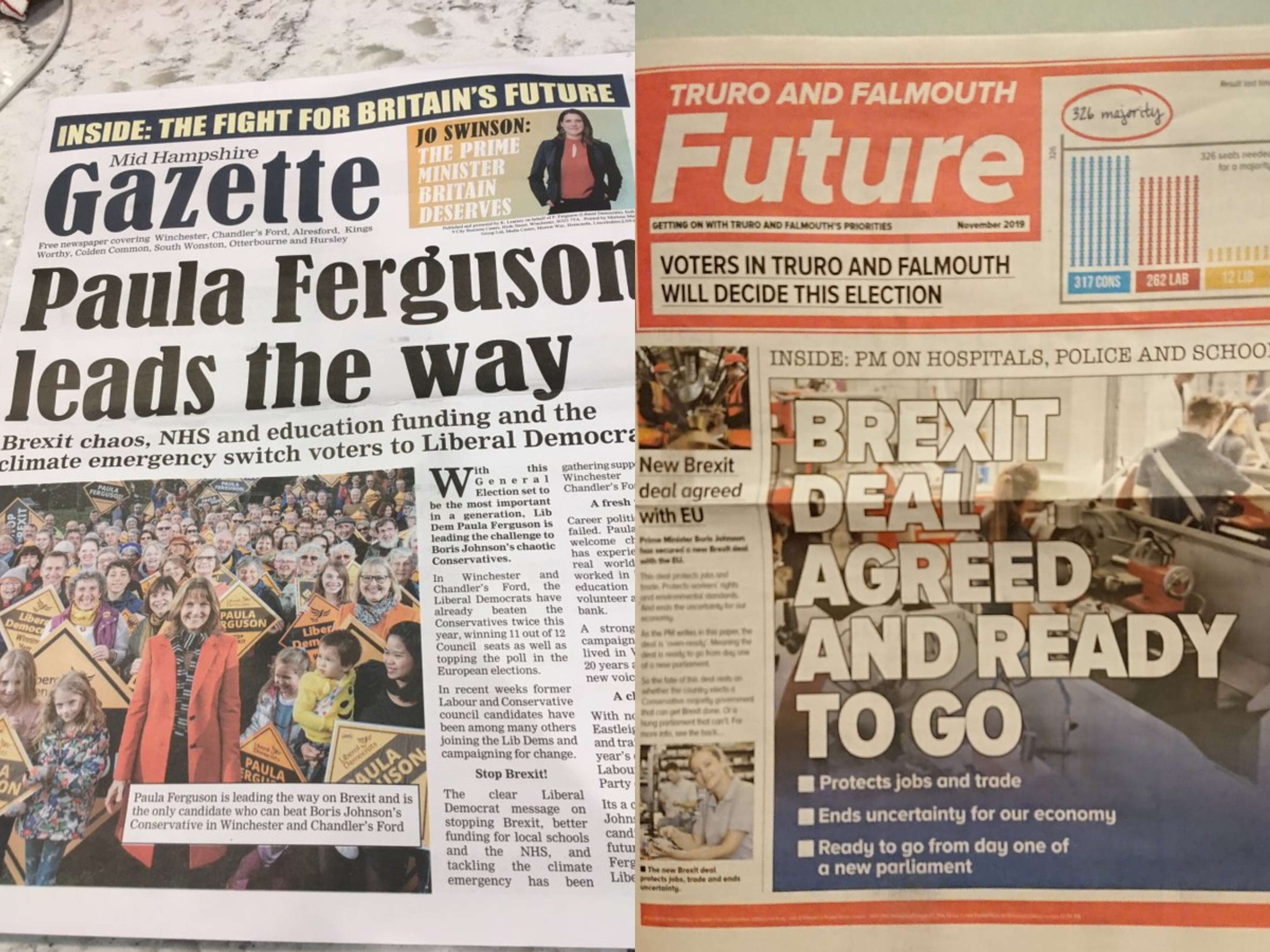
The Electoral Commission has called for “new laws or standards of conduct” to stop political parties using “misleading” campaign techniques such as designing election leaflets to mimic local newspapers.
Press Gazette called for an end to the practice during December’s general election after a number of egregious examples were shared by regional journalists around the UK.
The Liberal Democrats published a leaflet with a typical newspaper front-page layout and the masthead “Mid-Hampshire Gazette”, which journalists feared could be mistaken for Newsquest’s Basingstoke Gazette.
Other Lib Dem constituencies and some from the Conservatives and Labour created similar pamphlets.
Press Gazette said: “The attempt to deceive voters into believing they are reading a newspaper, however blatant, imperils the professional output of journalists at a time when our industry is under threat.
“Local newspapers have long been praised as pillars of the communities they serve, so it is small wonder politicians are keen for some of this to rub off on them, but it is far better they engage with the press than try to copy it.”
In its report on the December election published this week, the Electoral Commission shared concerns about “misleading campaign techniques” such as these, saying they can undermine public trust.
It also pointed to social media pages without clear branding as to who was responsible for them, and parties editing video clips to present their opponents in a negative light.
The Conservative Party temporarily rebranded its press office’s Twitter account to appear as a fact-checking service during one of the televised leader debates in a move the was heavily criticised.
It also released doctored video of Labour’s Keir Starmer appearing to show him struggling to answer a question on Good Morning Britain.
The Electoral Commission said: “We have signalled our concern about these issues before. If voters lose trust and confidence in political campaigning, democracy as a whole will suffer.
“Campaigners, candidates and parties themselves need to take greater responsibility for the presentation and content of campaigns they run and the impact of their activities on public confidence in elections.”
The body added that the country “cannot afford to miss the window of opportunity between now and the next scheduled general election”.
“There needs to be real change to protect trust and confidence in campaigns at future elections and the integrity of our democracy,” it went on.
“It will take governments, parties, campaigners, social media companies and regulators to work together to agree new laws or standards of conduct. We will support this work.”
Society of Editors executive director Ian Murray said the report showed the “hypocrisy of some in the political class who complain about fake news and a perceived lack of trust in the media, and then undermine trust themselves”.
Right picture: Nichola Sherriff
Email pged@pressgazette.co.uk to point out mistakes, provide story tips or send in a letter for publication on our "Letters Page" blog
